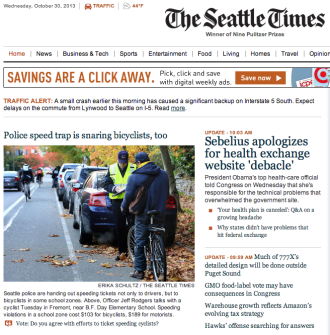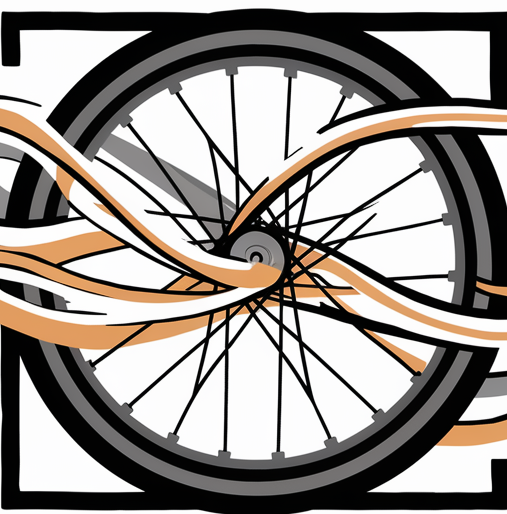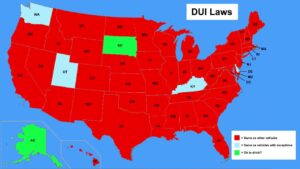Yes, you can get pulled over on a bicycle. Law enforcement officers have the authority to stop cyclists.
This can happen if they observe a violation or unsafe behavior. Riding a bicycle offers freedom and fun. But it’s important to know the rules. Cyclists must follow many of the same laws as drivers. Breaking these laws can lead to getting pulled over.
Understanding these rules helps keep you safe and avoid fines. So, what exactly can get you stopped? Let’s dive into what you need to know about cycling and the law. This knowledge can make your rides smoother and trouble-free.
Cyclists And Traffic Laws
Cyclists must follow traffic laws, just like drivers. Police can stop cyclists for breaking rules. Riding safely and respecting road signs is essential to avoid fines and ensure everyone’s safety on the road.
Cyclists and Traffic Laws Riding a bicycle offers a sense of freedom. However, it also comes with responsibilities. As a cyclist, you must adhere to traffic laws just like any motorist. Navigating the road requires more than just pedaling. You need to understand the legalities involved to ensure safety and avoid fines. Ever wondered how bicycle laws stack up against motor vehicle laws?Bicycle Vs. Motor Vehicle Laws
Bicycles and cars share the road, but their legal obligations differ. While a car requires a license and registration, bicycles generally don’t. However, the rules of the road, such as stopping at stop signs and signaling, apply equally. Cyclists must ride in the same direction as traffic and obey traffic signals. Imagine you’re at a red light; you wouldn’t run it in a car, so don’t do it on a bike. The key takeaway is that cyclists and drivers share mutual responsibilities on the road.Common Traffic Violations For Cyclists
Do you think cyclists can get ticketed? Yes, they can! Common violations include running stop signs, riding against traffic, and not using lights at night. Many cyclists assume sidewalks are safer, but riding on sidewalks is illegal in many areas. This can lead to fines and poses a risk to pedestrians. Always check local laws to stay informed. If you’ve ever thought, “It’s just a bike, I won’t get caught,” think again. Police are increasingly enforcing cycling laws to ensure safety. Stay aware and ride responsibly to avoid unwanted surprises. Understanding these rules can make your cycling experience smoother and safer. Next time you hit the road, remember: knowledge is power, and it might just save you from a ticket. Do you know your local cycling laws?Reasons For Being Pulled Over
Being pulled over isn’t just for cars. Cyclists can be stopped too. It’s vital to understand why this might happen. Police officers enforce laws to ensure everyone’s safety. Knowing the reasons can help you ride responsibly.
Suspicion Of Law Violation
Police might stop you if they suspect a law is broken. Running a red light is one example. Riding on the sidewalk in a prohibited area is another. You must follow traffic signs and signals. Bicycles are vehicles under the law. This means obeying the same rules as cars.
Safety Concerns
Safety is a major reason for being stopped. Riding without lights at night can lead to a stop. You need visibility for your safety and others’. Not wearing a helmet might also cause concern. Although not always required, helmets protect you. Police may stop you if they think you’re at risk. Riding erratically or swerving can alarm officers. They want to ensure you’re safe and not a hazard.
Rights Of Cyclists
Riding a bicycle offers freedom and joy. Cyclists often wonder about their rights on the road. Understanding these rights is crucial for safety and confidence. Knowing your rights helps in case of a traffic stop. Cyclists have specific legal protections just like motorists.
Legal Protections
Cyclists have legal protections under traffic laws. They must follow the same rules as drivers. They have the right to use most roads. In some areas, cyclists can even use sidewalks. Local laws vary, so check your area’s regulations. Helmets and lights might be required for safety.
Bicycles are considered vehicles in many places. This means cyclists have the right to a lane. They must signal turns and obey traffic signals. Cyclists should always ride in the same direction as traffic.
Interactions With Law Enforcement
Police officers may stop cyclists for traffic violations. This includes not following road signals or riding on restricted paths. Cyclists should remain calm during a stop. It’s important to know your legal rights. Always carry identification when cycling. This can help in case of a stop.
Communication with officers should be respectful. Ask questions if unsure about the reason for the stop. Knowing local cycling laws can help you in these situations. It’s your right to ask for a reason if you’re stopped.

Credit: www.seattlebikeblog.com
What To Do When Pulled Over
Getting pulled over on a bicycle can happen if you break traffic laws. Cyclists should stop safely and wait for instructions. Following police directions ensures safety and respects the law, helping resolve the situation smoothly.
Getting pulled over while riding a bicycle can be an unexpected and intimidating experience. You might wonder, “What am I supposed to do now?” Fortunately, there are steps you can take to handle the situation smoothly and ensure it doesn’t become more complicated than it needs to be. Whether you’re a seasoned cyclist or new to biking, knowing how to respond appropriately can make all the difference. Let’s dive into practical steps you can follow when faced with this scenario.Staying Calm And Cooperative
When you’re stopped by an officer, the first step is to remain calm. Take a deep breath and remind yourself to stay composed. Being cooperative goes a long way. If the officer asks for identification, provide it promptly. Respond to their questions honestly and clearly. Your attitude can influence the outcome. A friendly and respectful demeanor can make the encounter more pleasant for both parties involved.Documenting The Encounter
It’s wise to keep a record of the interaction. You can jot down notes immediately after the event, capturing details like the officer’s name, badge number, and the reason for the stop. Consider using your smartphone to record the conversation, if it’s legal in your area. This helps protect your rights and provides evidence if needed. Being proactive in documenting can be empowering. It ensures you have a clear memory of the event, which can be crucial if any disputes arise later. Have you ever been pulled over on your bike? How did you handle it? Share your insights in the comments below!Consequences Of Traffic Violations
Cyclists can indeed be stopped for breaking traffic laws. Riding through red lights or ignoring stop signs are common reasons. Bicycle riders must follow the same rules as cars.
Cycling is an enjoyable and eco-friendly way to commute, but it’s important to remember that cyclists must follow traffic laws just like motorists. Violating these laws can lead to consequences that many may not anticipate. While you might think a bicycle is a harmless mode of transport, traffic violations can have serious repercussions.Fines And Penalties
Yes, you can receive fines for breaking traffic rules on your bicycle. These fines are not just a slap on the wrist. They can be as costly as those issued to drivers of motor vehicles. Imagine you’re rushing to work and decide to ignore a stop sign. A police officer notices and stops you. You might end up with a ticket that costs you money you could have spent on a nice dinner or upgrading your bike gear. Some regions even require you to attend traffic school if you commit multiple violations. This can be a time-consuming process and might make you rethink the way you ride your bicycle.Impact On Cycling Privileges
Traffic violations on a bicycle can affect your cycling privileges. In some areas, repeated offenses can lead to restrictions on when and where you can ride. Think about how frustrating it would be if you’re banned from using the bike lanes you love. Or imagine having to walk your bike across busy intersections because you’re no longer allowed to ride there. Your reputation as a cyclist can also be impacted. If you’re known for flouting rules, other cyclists and motorists might not respect you on the road. Would you want to be seen as the cyclist who endangers themselves and others? Following traffic laws not only keeps you safe but also preserves your freedom to enjoy cycling. Next time you hop on your bike, consider the possible consequences of ignoring traffic rules. Are those few minutes you save by speeding through a red light worth the potential penalties and loss of privileges?
Credit: www.reddit.com
Appealing A Citation
Receiving a citation while riding a bicycle can be surprising. Many assume traffic laws only apply to motor vehicles. But cyclists must obey traffic rules too. If you believe a citation was unfair, you can appeal it. This process allows you to present your case and potentially have the citation dismissed. Understanding the steps involved can help you navigate the appeal efficiently.
Understanding The Process
First, familiarize yourself with the appeal process. Each region has its own procedures. Start by reading the details on the citation. This will often guide you on how to file an appeal. Deadlines are crucial, so ensure you act promptly. Missing a deadline can mean losing your chance to appeal.
Gathering Evidence
Evidence plays a key role in your appeal. Collect any relevant documents or photos. Witness statements can also strengthen your case. Was the signage unclear? Take a picture. Did someone see the incident? Ask them to write a statement. The more evidence you gather, the better your chances of success.
Educating Yourself On Local Laws
Riding a bicycle offers freedom and exercise. But knowing local laws is crucial. Laws can vary significantly between regions. Understanding them helps avoid unnecessary hassles. Ignorance can lead to fines or warnings. Thus, educating yourself is essential for a safe ride.
Resources For Cyclists
Many resources can help cyclists learn local laws. Local government websites often provide this information. Libraries may have books on cycling laws too. Cycling clubs are another great resource. Members often share knowledge about local rules. Online forums and communities can also be helpful. They allow cyclists to share experiences and advice.
Importance Of Staying Informed
Staying informed helps prevent legal issues. Laws can change, impacting your rights and responsibilities. Regularly check for updates in your area. This ensures compliance and enhances safety. Knowing the rules can make your ride stress-free. It also fosters respect between cyclists and motorists. An informed cyclist is a responsible cyclist.
Advocacy And Cyclist Rights
Cyclists are increasingly present on city streets. Yet, their rights often remain misunderstood. Advocacy for cyclist rights is crucial. It ensures safe and fair treatment for all riders. Awareness of these rights can protect cyclists from unfair stops. Understanding these can make biking safer and more enjoyable.
Organizations Supporting Cyclists
Numerous organizations work tirelessly for cyclists. The League of American Bicyclists is one such group. They advocate for bike-friendly policies across the nation. Another key player is PeopleForBikes. They focus on better bike infrastructure and community awareness. Local advocacy groups also exist in many cities. These organizations aim to improve cycling conditions. They provide resources and support for cyclists in need.
Promoting Safe Cycling Practices
Safe cycling practices are vital for all riders. Wearing a helmet is a basic safety measure. Following traffic signals is equally important. Cyclists should use hand signals to communicate. Riding predictably helps other road users understand intentions. These practices can reduce accidents and enhance road safety.
Education on cycling laws is also essential. Cyclists must know their rights and responsibilities. Awareness can prevent misunderstandings with law enforcement. Proper knowledge ensures a smoother riding experience.

Credit: www.reddit.com
Frequently Asked Questions
Can Cops Pull Over A Bike?
Yes, cops can pull over a bike. Bicyclists must follow traffic laws like other vehicles. Police ensure cyclists’ safety and compliance with regulations. Traffic violations, like running red lights or riding recklessly, can lead to stops. Always carry identification and obey traffic rules for a safe biking experience.
How Much Can You Pull On A Bicycle?
A fit cyclist can typically pull 50-100 pounds on a bicycle trailer. Cargo bikes can handle up to 300 pounds.
What Are The Bicycle Laws In Texas?
Cyclists in Texas must follow traffic laws like motor vehicles. Ride in the same direction as traffic, obey signals, and use lights at night.
Can A Bicycle Get Pulled Over For Speeding?
Yes, a bicycle can be pulled over for speeding. Cyclists must adhere to local speed limits. Police can issue fines if a cyclist exceeds these limits. Always check the specific regulations in your area to stay compliant and safe while riding your bicycle.
Conclusion
Riding a bicycle has its rules. Yes, you can get pulled over. Cyclists must follow traffic laws. Obeying these rules keeps everyone safe. It also helps avoid fines. Always stay alert and ride responsibly. Equip your bike with lights and reflectors.
This increases visibility, especially at night. Respecting road rules benefits all road users. Happy and safe cycling!


